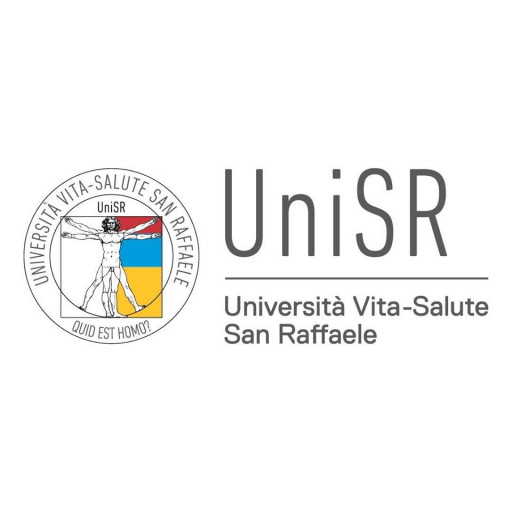Photos of university / #newcastleuni
The Marine Biology programme at Newcastle University Medicine Malaysia offers a comprehensive and in-depth exploration of the natural world beneath the waves, equipping students with the knowledge and practical skills necessary to understand marine ecosystems, the diverse organisms that inhabit them, and the challenges they face in a changing environment. Designed to provide a strong foundation in biological sciences with a focus on marine habitats, the programme integrates theoretical coursework with practical laboratory and fieldwork experiences, enabling students to apply scientific principles to real-world marine conservation and research issues. Students will study areas such as marine ecology, oceanography, marine conservation, and the biology of marine organisms, gaining insight into the biological processes that sustain ocean life. The curriculum also emphasizes modern techniques in marine research, including the use of remote sensing, GIS, and laboratory analysis, preparing graduates for careers in research, conservation, environmental consultancy, or further academic study. Throughout the programme, students will have opportunities to participate in field trips and internships, facilitating hands-on experience and understanding of marine environments, particularly in Southeast Asia’s diverse and vibrant marine ecosystems. With a focus on sustainability and environmental stewardship, the programme encourages students to consider the impacts of human activity on marine life and develop solutions for preserving ocean health. By the end of the course, graduates will possess a comprehensive knowledge of marine biodiversity, ecological principles, and research methodologies, making them well-equipped for employment in marine research institutions, government agencies, NGOs, or to continue their academic journey with postgraduate studies. The Marine Biology programme at Newcastle University Medicine Malaysia is committed to fostering innovative thinking, scientific excellence, and a passion for marine conservation, all within a modern and supportive learning environment.
Contents
Our high research degree completion rates testify to the supportive environment and excellent supervisory systems we have in place for our research students and the quality of the training we provide in project-specific and transferable skills. Our Science, Agriculture and Engineering Graduate School provides training in professional/key skills and research techniques, supports personal development, hosts postgraduate events and has links with several specialist graduate training networks.
Program Requirements:
Applicants must hold a recognized prior qualification in a relevant subject such as Biology, Marine Biology, Environmental Science, or a related discipline. A minimum of an upper second-class (2:1) bachelor's degree or equivalent is typically required; however, applicants with substantial relevant work experience may also be considered. Proficiency in English is essential, demonstrated through standardized tests such as IELTS with an overall score of at least 6.5, with no component below 6.0, or equivalent evidence of language proficiency. Applicants are expected to submit a complete application form, along with official transcripts, a personal statement outlining their interest and motivation for studying Marine Sciences, and two academic or professional references. For international applicants, proof of financial support covering tuition fees and living expenses must be provided. Some applicants may be invited for an interview as part of the selection process to assess their motivation, communication skills, and suitability for the programme. Prior research experience or relevant internships can strengthen an application but are not mandatory. Applicants should also demonstrate familiarity with basic scientific principles and laboratory skills relevant to Marine Sciences. The programme is designed to build on prior knowledge, so foundational understanding of Ecology, Oceanography, and Marine Ecosystems is beneficial. Successful applicants are expected to actively engage with coursework, practical sessions, and research projects throughout the programme. Additional requirements may include submission of a research proposal for the final project and compliance with university health and safety policies. Special consideration may be given to candidates with specific interests aligned with the university's research strengths, such as marine conservation, sustainable fisheries, or marine biotechnology.
The financing options for the Marine Sciences programme at Newcastle University Medicine Malaysia are designed to support students throughout their academic journey. Prospective students can explore a range of funding opportunities to help cover tuition fees and living expenses. One primary source of funding is the university’s own scholarship schemes, which are awarded based on academic merit, leadership qualities, and other exceptional achievements. These scholarships may cover partial or full tuition fees and are highly competitive. Additionally, students are encouraged to seek external scholarships from Malaysian government agencies, private foundations, and international organizations that support higher education in the sciences.
The Malaysian government offers various financial aid programs, such as the MyMaster's and MyPhD schemes, which can be applicable for postgraduate research in Marine Sciences. Applicants should check eligibility and application procedures through official government portals. Moreover, financial assistance such as student loans may be available from Malaysian banks and financial institutions, designed to help students undertake their studies without immediate financial burden. Some students also consider part-time work opportunities within the university or in nearby communities, which can provide supplementary income and valuable work experience.
International students should verify specific funding options available to them, including any scholarships tailored for international applicants. Financial planning should take into account not only tuition fees but also accommodation, health insurance, transportation, and daily living costs, which can vary depending on lifestyle choices. Newcastle University Medicine Malaysia frequently updates its financial support programs, and prospective students are advised to consult the official university website or contact the admissions office for the most current information. Overall, the university aims to make Marine Sciences education accessible and affordable through a variety of funding avenues, ensuring talented students from diverse backgrounds can pursue their academic and research interests in marine environments.
The Marine Sciences programme at Newcastle University Medicine Malaysia (NUMed) offers students a comprehensive education in the natural and physical processes of marine environments. The course is designed to equip students with a solid foundation in biological, chemical, physical, and geological aspects of marine ecosystems, preparing graduates for careers in research, environmental management, and consultancy within the marine sector. The curriculum includes modules in oceanography, marine biology, marine conservation, and sustainable management of marine resources, providing students with both theoretical knowledge and practical skills through laboratory work, field trips, and research projects.
Throughout the programme, students will explore key themes such as marine biodiversity, the impact of climate change on ocean systems, marine pollution, and the socio-economic importance of marine resources. The programme also emphasizes the development of transferable skills in data analysis, scientific communication, and project management, which are vital for professional success in marine sciences. An important aspect of the course is its strong focus on local and regional marine environments, particularly focusing on Malaysia's rich and diverse coastal ecosystems, including coral reefs, mangroves, and estuaries.
Students benefit from access to state-of-the-art laboratory facilities and partnerships with local marine research institutes, providing opportunities for internships and collaborative research projects. The programme prepares graduates for careers in environmental consultancy, marine conservation organizations, government agencies, and international bodies concerned with marine issues. It is also a suitable pathway for students aiming to pursue postgraduate studies in Marine Sciences or related fields. The teaching staff comprises experts in their respective fields with extensive research experience, ensuring students receive a high-quality education rooted in current scientific developments. The overall goal of the programme is to develop environmentally conscious professionals who can contribute to the sustainable management of marine environments worldwide.
The curriculum is designed according to international standards of higher education and incorporates elements of interdisciplinary learning, enabling students to approach marine issues holistically. The programme duration is typically three years for full-time students, with opportunities for studying part-time or participating in exchange programmes. Graduates from this course are well-positioned to address some of the most pressing marine environmental challenges facing the world today, making it an excellent choice for students passionate about marine conservation and scientific research.










